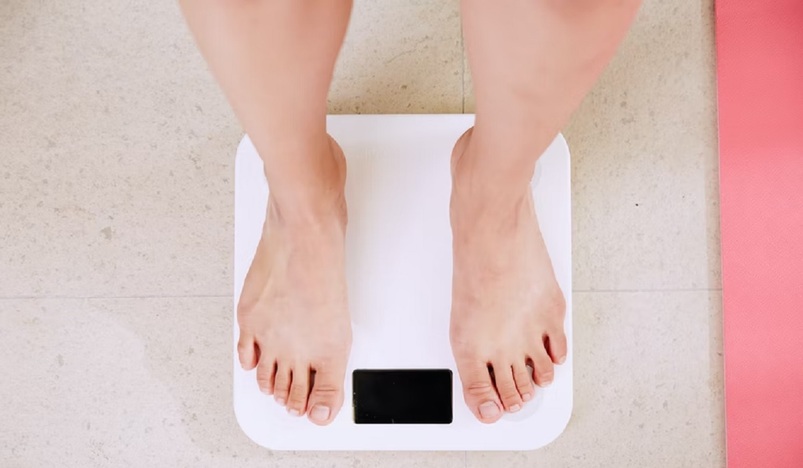
Calculating TDEE at home
Are you trying to lose weight? Have you heard about BMR and TDEE and want to know what they are? These are two important acronyms in the weight loss community, but not many people understand them.
Get a quick start on your weight loss journey by calculating TDEE at home!
In this article, we'll go over what BMR and TDEE stand for, how to calculate them, why it's important to find out your total daily energy expenditure, and whether or not these calculations help you lose weight.
TDEE stands for Total Daily Energy Expenditure. It is the total amount of energy your body uses in a day, including the energy you burn while sleeping. This means that by knowing your BMR, you can calculate how much food/calories you need to maintain your weight and then add a certain number of calories to that number based on your activity level (i.e., if you exercise regularly).
Calculating TDEE is an important tool for people who want to lose weight since it helps them determine their baseline calorie needs and what they should be eating so they can reach their goals faster and more easily.
There are many different factors that can affect TDEE including age, gender, genetics, and activity level as well as muscle mass vs fat mass. However, by using these two formulas above we believe this will give us good estimates at least within 5-10% accuracy.
To calculate your TDEE, you need to know your BMR and the number of calories you burn through exercise. Once you have these numbers, you can use this formula:
TDEE = BMR + (1500 * x)
Where x is the number of hours per day that you exercise.
The Basal Metabolic Rate (BMR) is the amount of energy (calories) your body needs for basic functions such as breathing and digesting food. BMR can be calculated by taking into consideration your age, height, weight and gender. However, it's important to note that there are a lot of factors that affect your BMR such as:
Genetics: Some people naturally have faster metabolisms than others. A slow-burning metabolism is usually caused by an underactive thyroid gland or other similar conditions; while a fast-burning metabolism may be due to high activity levels or low body fat percentage.
Body Type: This refers to how much muscle you have compared with fat in your body — the more muscle you have on top of bones/fat tissue = higher BMR because lean tissue requires more energy than fat tissue per pound! So if someone trains hard then their bodies will adapt accordingly resulting in higher daily expenditure which would result in higher daily calorie intake requirements too...
BMR is the number of calories you burn in a day at rest. It’s calculated by the Harris-Benedict equation, which takes into account your age, height, weight, and gender. Your BMR will be different from someone who weighs 25 pounds more than you or someone who is 10 years older than you—so keep that in mind while using this formula!
The Harris-Benedict equation is:
Predictor Value x 4.184 + (6.755 x WKG) + (11.397 x HM) - 697 = Resting Metabolic Rate in kcal/day
Calculating your BMR and TDEE helps you determine how many calories you need to eat to lose weight, maintain your current weight or gain weight.
While most people know that eating less than their BMR means they'll lose weight, it's important to understand how many calories you burn a day before deciding what kind of diet you want to follow.
And once you've determined the right amount of calories for your goals, calculating BMR is also useful because it gives you an idea of how much more exercise (or less) might be necessary. If your goal is to lose fat and get in shape while maintaining muscle mass, then working out with weights will help achieve these goals better than running alone would.
But doing too much cardio exercise can cause muscle loss—the opposite effect we're looking for! So if someone wants to tone up without losing muscle mass firstly by calculating their TDEE then secondly adjust accordingly by adding in resistance training exercises such as lifting weights or kettlebells etcetera into their weekly routine
Yes, it does help you lose weight. With the information provided by your BMR and TDEE, you can know how many calories you have to eat every day in order to lose or maintain your weight. You can also determine the number of calories you should eat per day to burn fat and build muscles.
By using these calculations, you are able to reach your goals faster than before because they give you a clear picture of what type of diet plan is right for your body type and activity level.
BMR and TDEE are important concepts to know regarding your health. They can help you determine if you need to eat more or less food in order to reach a goal weight. Knowing your BMR and TDEE will also help you set realistic goals like losing five pounds in one month rather than trying for ten pounds because those numbers are just too high of an expectation for most people. Just remember that it takes time and effort, but with these calculations, you'll be well on your way to a healthier lifestyle!
.jpg)
Qatar Secures Place Among the World's Top 10 Wealthiest Nations
.jpg)
Hamad International Airport Witnesses Record Increase in Passenger Traffic

Saudi Arabia: Any visa holder can now perform Umrah

What are Qatar's Labour Laws on Annual Leave?
Leave a comment